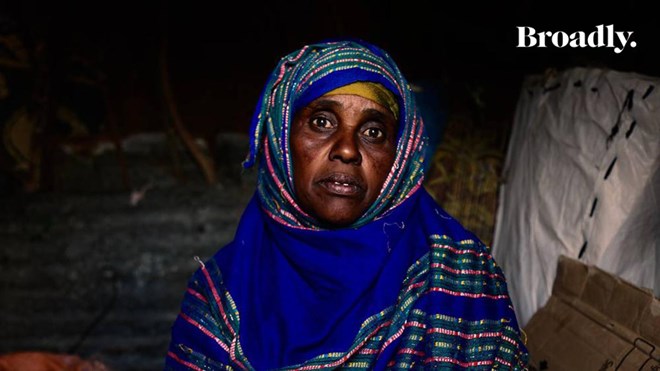
Sunday April 9, 2017

In Somaliland, a crippling drought has driven many women and children from their rural villages and into dangerous and overcrowded refugee camps.
"I had 120 animals," Amina Abdul Hussein, a mother of three tells me as we sit inside her ragged cloth tent in Maxamad Mooge camp, temporarily shielded from the midday glare of the sun. "But the drought killed all of them."
Dozens of unofficial camps like this are scattered across the outskirts of Hargeisa, the capital of the self-declared independent state of Somaliland in East Africa. The UNHCR reports that nearly 40,000 people have already been forced out of their native rural villages by drought in the last three months. Trigged by El Niño, the drought has been worsened by climate change, according to a new study published by the American Meteorological Society.
Livestock production is the backbone of Somaliland's economy and represents an important component of the country's gross domestic product (GDP), with around 65 percent of the population practicing some form of pastoralism. With no livestock and insufficient support from the international community and the government of Somaliland, tens of thousands have been forced to abandon their agricultural way of life and come to the city.
However, women who arrive in Hargeisa have few employment opportunities in comparison to their male counterparts, and quickly find themselves living in adverse conditions on the outskirts of town. From pregnancy complications to sexual assault and the lack of sanitary facilities, it is clear that it is women who are bearing the brunt of the drought and its consequences.
"I was pregnant before coming here but I had no water, so I lost my baby, " Hussein tells me.
A recent study confirms her suspicions: It found that climate change, specifically in Africa, could result in low birth weights which does put babies at risk of experiencing health complications—and can lead to pre-term or stillborn babies in some cases.
"Birth weight outcomes are impacted by changes in the number of hot days and precipitation amounts," explains Kathryn Grace, the lead author of the study. "Women who are pregnant are more sensitive to heat stress, dehydration, e.t.c.," especially in developing countries where resources are limited, she warns.
Animal carcasses litter the bush around Somaliland's arid terrain. With no livestock, tens of thousands of Somalis have been forced to migrate to the cities.
Hussein was left in a pool of blood after she miscarried. When her husband discovered the miscarriage, he abandoned the family and came to the city. With no access to water or food, she decided move to Hargeisa where she hoped her extended family would be able to support her. "[But] the situation was very different to what we had expected, they [did] not welcome us," Hussein says, "so I came to this camp with my three children."
However, she adds, no humanitarian agencies operate in this camp. In fact, women are expected to pay rent to their so-called landlords. "This land is privately owned, so we have to pay. When we don't pay, they [the landlords] grab the land back from us and we are forced to move again," says Hussein. "See the stones we are standing on? We pick them up and go sell them at the market. We make about 60,000 SOS [approximately $8] per ton."